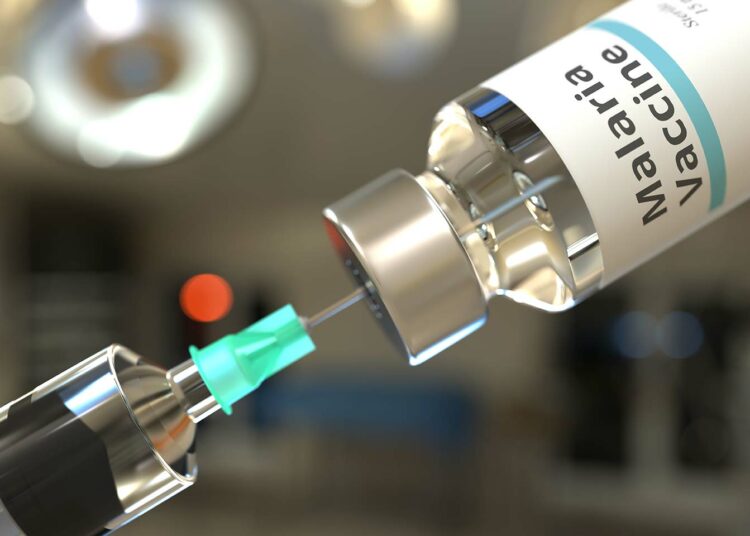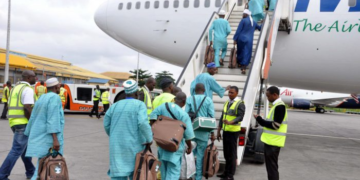The introduction of the malaria vaccine marks a monumental step in the global fight against one of the deadliest diseases in tropical and sub-tropical regions, particularly in sub-Saharan Africa. In countries like Nigeria, where malaria remains a leading cause of morbidity and mortality, this vaccine offers hope for significantly reducing the burden of the disease. But for the vaccine to achieve its full potential, it is critical that communities understand its benefits, adhere to its dosage schedule, and continue other preventive measures alongside vaccination.
Why The Malaria Vaccine Is A Game-changer
Malaria is caused by a parasite transmitted to humans through the bites of infected female Anopheles mosquitoes. Despite decades of efforts with mosquito nets, insecticides, and antimalarial drugs, malaria remains a major health threat. The introduction of a malaria vaccine — specifically the RTS,S/AS01 (RTS,S) vaccine — has the potential to save millions of lives, particularly in high-risk regions like sub-Saharan Africa.
The RTS,S vaccine works by stimulating the immune system to fight the Plasmodium falciparum parasite, which causes the most deadly form of malaria. It has shown effectiveness in clinical trials, reducing the number of malaria cases and the severity of the disease among children.
Awareness is key-knowing your child’s eligibility, following the vaccination schedule diligently, and monitoring for any reactions will ensure the safety and effectiveness of the vaccine.
Nigeria carries the highest burden of malaria which accounts for approximately 27 per cent of the global malaria burden and 31 per cent of malaria deaths worldwide. According to the 2023 World Malaria Report, nearly 200,000 deaths from malaria occurred in Nigeria.
Malaria is one of the top reasons for out-of-school children and is prevalent in Nigeria. With so much cost and ineffective medications due to the adaptations of the parasite due to improper adherence to the mode of taking these drugs.
Who Can Take The Vaccine?
“In a Phase 2 trial conducted in Mali, women who were planning to get pregnant were given doses of the first-generation PfSPZ vaccine by U.S.-based biotechnology company Sanaria. The trial showed the vaccine could protect the women against malaria infection for at least two years — through two malaria transmission seasons — without receiving a booster dose. Protection was also observed among those who became pregnant after vaccination, and the vaccine was well-tolerated and safe among mothers and their newborns” Devex.
“Nigeria’s Federal Ministry of Health has been leading critical malaria control interventions, including the distribution of Long-Lasting Insecticide-Treated Nets (LLINs) and Seasonal Malaria Chemoprevention (SMC). The introduction of the malaria vaccine marks another powerful tool in the country’s comprehensive strategy to combat the disease.
The malaria vaccine, which requires four doses, will be administered to children under one year of age as part of Nigeria’s Routine Immunization schedule. The first phase of the rollout will begin in Kebbi and Bayelsa States in November 2024, where malaria prevalence is particularly high, with over 800,000 doses set to be distributed during this phase” UNICEF.
How To Prepare For The Malaria Vaccine:
The World Health Organization (WHO) recommends that children receive the RTS, S/AS01 malaria vaccine in a series of four doses, starting around five months of age. The vaccine is administered as an intramuscular injection, usually in the deltoid region, with each dose given one month apart.
The vaccine is intended to be used in combination with other malaria prevention and control measures, such as bed nets and indoor insecticide spraying. A study found that when the RTS, S vaccine was combined with bednet distribution, it was 71 per cent effective against clinical malaria in the first 18 months, and 65 percent effective in the second 18 months.
Countries should tailor their vaccination schedules and communication efforts to their specific context. They should consider using the same communication channels they use for other vaccines, as this can help them communicate with communities and address potential challenges.
Ask questions about your baby’s age and eligibility for the vaccine.
Notify your doctor if you notice any reaction before or after the vaccination.
Alongside the vaccination, maintain a clean and hygienic environment that discourages the breeding of mosquitoes.
Make sure to notify the doctor if the child has been on a previous medication.
Make sure to be aware of the number of doses you need to take to complete the series.
Vaccination is free
Note the date for your next vaccination and try not to miss it.
Equally important is maintaining a clean environment and using complementary malaria prevention tools such as insecticide-treated bednets and indoor spraying. Together, these efforts provide a holistic approach to malaria prevention. By staying informed and committed, we can collectively protect our children and communities, paving the way for a malaria-free future in Nigeria.
Why It’s Important For Parents, Caregivers To Stay Informed
Understanding The Schedule: Ensuring that children receive all four doses on time is crucial for the vaccine to provide full protection. Delayed or missed doses can reduce its effectiveness.
Monitoring For Side Effects: While side effects are rare and generally mild, parents and caregivers should be aware of what to expect and when to seek medical help, especially if unusual symptoms arise.
Complementing With Other Measures: The vaccine alone is not enough to prevent malaria. Parents should continue using insecticide-treated bed nets, ensuring their children sleep under them every night, and take any prescribed antimalarial medications.
Educating Communities: Beyond individual families, it’s important to spread awareness in communities. The more informed people are, the more likely they are to adhere to vaccination schedules and preventive measures, leading to greater community-wide protection.
The Road Ahead
For the malaria vaccine to have its desired impact, national health systems, local governments, and international organizations must work together to ensure that the vaccine is accessible to all who need it. This includes tackling logistical challenges in distributing the vaccine, overcoming potential misconceptions, and ensuring equitable access, especially in rural and hard-to-reach areas.
Malaria remains a formidable enemy, but the vaccine offers a beacon of hope. When combined with other strategies, it could lead to a dramatic reduction in malaria cases and deaths, ultimately bringing us closer to a world where malaria is no longer a public health crisis.
By staying informed, adhering to vaccination schedules, and continuing preventive measures, communities can ensure the malaria vaccine reaches its full potential, helping to protect future generations.











